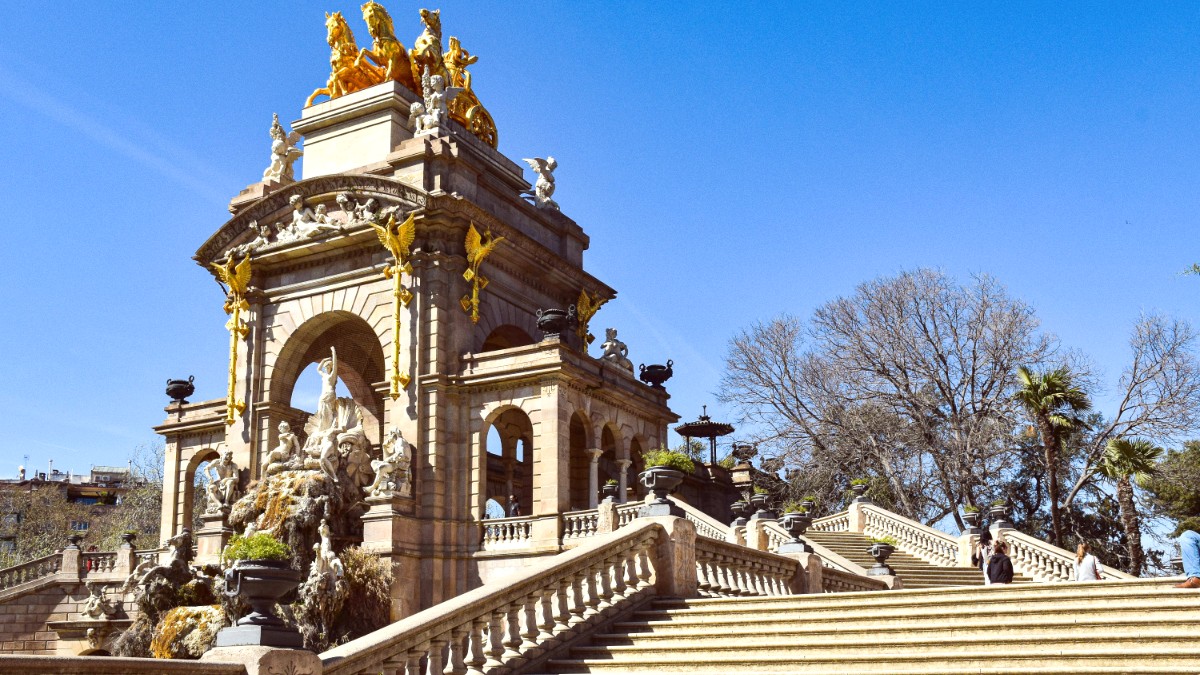
Spain
Each season presents unique conditions and opportunities for exploration.
Different times of the year cater to varied preferences, whether seeking summer activities or tranquil off-season charm. The island's charm lasts year-round.
Specific weather patterns influence your visit. The "Tramuntana," a strong northerly wind, can affect the island, especially in winter. It can influence outdoor activities.
It makes northern beaches unsafe for swimming and can disrupt ferry services. Summers also bring brief, intense heatwaves. Monitoring local forecasts is always a good idea.
July-August
Sea temperatures are at their warmest (up to 27°C/81°F), making swimming ideal. All tourist services, restaurants, and shops operate at full capacity.
Beaches and attractions experience significant crowds. Accommodation, flights, and car rentals are at their highest prices. Intense heat makes daytime exploration uncomfortable.
May-June, September-October
Temperatures are pleasant for both swimming and exploring. Crowds are smaller than in high season. Prices for accommodation and flights are lower. This period is ideal for hiking, cycling, and exploring the island’s natural beauty.
The sea might still feel cool for swimming in early May. Some beach services or smaller establishments may begin to close down in late October.
November-April
This period offers the lowest prices for travel and accommodation. The atmosphere is tranquil, providing an authentic local experience without tourist crowds. It is ideal for cultural exploration, hiking, and enjoying the island's quieter side.
Many tourist-oriented businesses are closed. Flight and ferry options are limited. Sea temperatures are cooler, and there is a higher chance of rain and strong winds.
Menorca's climate permits various activities throughout the year.
The island's cultural calendar offers unique opportunities, with Sant Joan as a major event. Planning around festivals brings unique cultural immersion.
June to mid-September offers the best sea temperatures.
April-May and September-October provide ideal mild temperatures for outdoor activities.
You can explore Ciutadella’s culture year-round. The low season provides a quieter, more local experience.
Plan your visit for late June to experience Ciutadella’s most famous festival. Book accommodation well in advance.
Summertime brings the best conditions for various water sports across the island.
Travelers to Ciutadella de Menorca must meet Spain's entry requirements, as Menorca is part of Spain and the Schengen Area.
Citizens from most non-EU/EEA countries require a Schengen visa for stays up to 90 days within any 180-day period. Visa applications undergo specific protocols.
Prepare these documents carefully for your visit. Accurate and complete documentation streamlines your arrival into Spain.
Upon arrival at Menorca Airport (MAH) or Ciutadella ferry port, travelers undergo passport control. Immigration officers may ask about your visit.
Plan your budget for Ciutadella to match your travel style. The official currency is the Euro (€).
ATMs (cajeros automáticos) are widely available in Ciutadella and all major towns, accepting most international debit and credit cards. Major cards (Visa, Mastercard, American Express) are accepted at nearly all hotels, restaurants, and shops.
It is wise to inform your bank of your travel plans to prevent card issues during your trip. While currency exchange services are available, ATM withdrawals typically offer the best exchange rates. Carrying some cash for smaller purchases or local markets proves useful.
Visa, Mastercard, American Express widely accepted.
Inform your bank of travel plans.
ATM withdrawals often offer best rates.
Carry some cash for local markets or small transactions.
ATMs are readily available throughout the city and major towns.
This breakdown provides price ranges for various travel expenses, assisting your financial planning for Ciutadella. Costs vary by season and personal choices.
Prices for lodging vary significantly by type and season. Peak season sees higher rates.
Dining prices cater to various budgets, from quick bites to fine dining. Local eateries offer good value.
Implement these strategies to manage your budget effectively during your Ciutadella visit. Smart choices extend your travel funds.
Prioritize your health and safety during your visit to Ciutadella. Awareness and preparation contribute to a worry-free trip.
No specific vaccinations are required for entry to Spain from most countries.
It is recommended that routine vaccinations (e.g., measles, mumps, rubella, diphtheria, tetanus, pertussis, polio) are up-to-date.
Consult a healthcare professional before travel for personalized advice based on your medical history and travel plans.
Sunburn and Heatstroke: The UV index is high, especially in summer.
Use High-SPF, broad-spectrum sunscreen (SPF 30+). Wear a Wide-brimmed hat and Sunglasses. Seek shade during peak sun hours (12:00 PM - 4:00 PM).
Dehydration: Drink plenty of water throughout the day. Carry a Reusable water bottle. Jellyfish Stings: Rare but possible, notably after storms or in certain currents. Local beach flags indicate conditions. Minor Cuts and Scrapes: From rocky paths or uneven surfaces. Carry a basic Travel first aid kit.
Remember to check beach flags for any warnings before swimming.
Can access state healthcare at reduced cost or for free with a valid European Health Insurance Card (EHIC).
Should have comprehensive travel insurance that covers medical emergencies, including emergency evacuation.
Hospital Mateu Orfila, the main hospital for Menorca, is in Mahón. Ciutadella has a 24-hour main care center (PAC) for urgent but non-life-threatening issues. Pharmacies (Farmacias) are easily identifiable by a green cross sign and offer remedies.
Menorca generally has a very low crime rate and is considered one of the safest destinations in Spain. However, awareness is always prudent.
Prioritize your well-being and safety. Comprehensive travel insurance and knowing emergency contacts provides peace of mind.
Comprehensive travel insurance is highly recommended. A good policy covers medical emergencies, emergency medical evacuation, trip cancellation or interruption, and lost or stolen baggage. World Nomads or SafetyWing offer robust plans.
General Emergency (Police, Fire, Ambulance): 112 (Europe-wide emergency number, free to call from any phone). Local Police (Policía Local de Ciutadella): 092. National Police (Policía Nacional): 091. Guardia Civil (Rural/Coastal Areas): 062.
Keep contact details for your country's embassy or consulate in Spain (most are in Madrid or Barcelona) and your travel insurance provider readily accessible. This can be important in unforeseen circumstances.